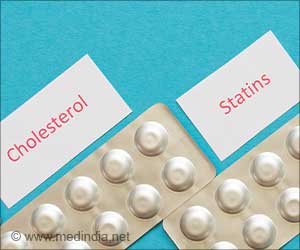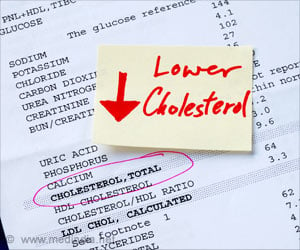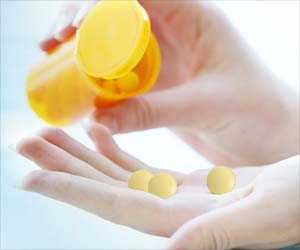Specially designed bits of ribonucleic acid (RNA) can interfere with cholesterol metabolism, reducing harmful or bad cholesterol by two-thirds in pre-clinical tests, researchers are reporting.
In a new study, researchers at UT Southwestern Medical Center in collaboration with Alnylam Pharmaceuticals and the Massachusetts Institute of Technology, found that single dose of a small interfering RNA (siRNA) lowered cholesterol levels up to 60 percent in rodents, with the effects lasting for weeks.The results showed that the RNA interference, or RNAi, mechanism could provide a new tactic for treating high cholesterol.
Similar treatments in four nonhuman primates, conducted off-site by a certified contract research organization, produced an average 56 percent drop in low-density lipoprotein cholesterol levels in the animals' blood.
The siRNA jams the production of PCSK9 (proprotein convertase subtilisin/kexin type 9), a protein that normally raises the level of LDL cholesterol, the "bad" cholesterol that tends to create fatty deposits inside blood vessels.
Earlier studies found that people with mutations in the PCSK9 gene, which prevented them from making normal levels of the PCSK9 protein, had LDL cholesterol levels 28 percent lower than individuals without the mutation and were protected from developing coronary heart disease.
"It's very clear that eliminating this protein has cardiovascular benefits," said Dr. Jay Horton, professor of internal medicine and molecular genetics at UT Southwestern and the study's co-senior author.
Advertisement
"RNA-based drugs might provide a course of treatment for people whose cholesterol levels are resistant to current drugs, or they might be combined with current drugs," said Horton.
Advertisement
After this, levels of PCSK9 dropped up to 70 percent in mice livers and 60 percent in rat livers, where the protein is primarily produced. The nonhuman primates also showed a significant drop in blood levels of PCSK9.
Along with the drop in PCSK9, the levels of cholesterol in the blood dropped by about one-third in mice and nearly two-thirds in rats.
The nonhuman primates' LDL cholesterol dropped an average of 56 percent, with one animal showing a nearly 70 percent reduction.
The study appears in an upcoming issue of the Proceedings of the National Academy of Sciences.
Source-ANI
RAS/S














